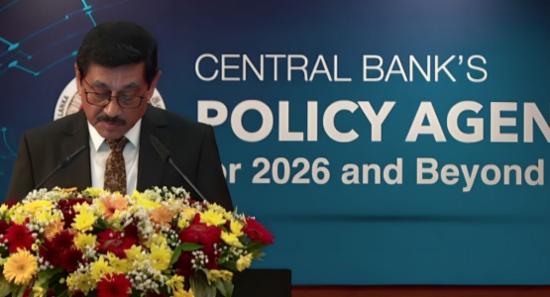.webp)

Fitch Ratings downgrade SLT and CEB
COLOMBO (News 1st) - Fitch Ratings has revised its outlook on Sri Lanka Telecom and the Ceylon Electricity Board to negative from stable.
According to Fitch Ratings, this was as a result of its Outlook revision on Sri Lanka's long term credit rating, to Negative from Stable, as both entities are strongly linked to the state.
Fitch has revised the Outlook on Ceylon Electricity Board's National Long-Term Rating to Negative from Stable.
Fitch expects CEB's operating profits to remain weak in the medium term, especially in the absence of tariff increases and rising generation costs.
The regulator expects electricity demand to increase by about 6% a year in the next five years, which will require significant capacity expansion if the industry is to make up for the existing supply shortage. It added, CEB, requires investments of USD 1.7 billion until 2022.
Former North Central Province Councillor of JVP Wasantha Samarasinghe expressed views regarding Fitch Ratings:
"They point out that Sri Lanka's debt crisis resulted in the country's Fitch rating being revised to negative.
Tax cuts cost the country 23% of expected tax revenue and this was one of the major factors that contributed to this rating. In the situation where the government revenue is not sufficient to pay the country's instalment and interest, losing 20% of the expected tax revenue increases the borrowing requirement of the nation.
That means in 2020 if we are due to pay a total of 2,000 billion of the loan installment and interest, the expected government revenue is 1,850 billion.
That means we are short of 150 billion. Against such a backdrop we are losing 22% of the 1,850 billion. We are saying no to 480 billion.
This is favourable in the aspect of the economy as concessions need to be provided to the general public. These tax concessions should be felt by the economy in maybe a month or two.
But the problem now is that before the people have felt the effects of the tax concessions, as a nation in terms of economic stability our rating has been revised to negative.
As a country, when we are obtaining loans, we have a major problem at hand because of this rating these organizations are hesitant to lend us money.
As a result of that, we will have to obtain essential loans. Instead of taking low-interest loans we are now left with the option of borrowing at higher interests.
This will result in us increasing our loan interest by borrowing more and thereby increasing our interest rate and that will result in us losing the tax concessions."
Other Articles
Featured News





.png )


-822427_550x300.jpg)







-819380_550x300.jpg)


-812087_550x300.jpg)
-810262_550x300.jpg)
















.gif)